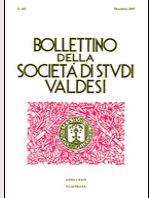Krakow, Poland
15-19 July 2018
Deadline : 15 November 2017
The history and cultural heritage of Jews living in the territories of
Southeastern Europe is an understudied area in both Jewish and European
Studies. Although this fascinating multi-ethnic and -religious region is
located at the crossroads of the Mediterranean, Central and Eastern European
World, part of the Ottoman Empire, and including Ashkenazi-Sephardi fault
line, it hasn’t received sufficient scholarly attention so far. Compared to the
research of Jewish communities of Poland, Romania or Hungary, for instance,
the geo-political complexity of the Southeastern European Jewry frequently
resulted in fragmented scholarship, often of local character, and dealing with narrowly
defined linguistic, historical, or social aspects.
As the result of the Holocaust and emigration, the not very large Jewish
communities in the region were drastically reduced after World War Two – yet,
in spite of the small numbers, a researcher faces the complex fabric of
communities and languages of the surrounding cultures. So far, this seems to
have deterred scholars. Moreover, post-WW II communist regimes did not
encourage critical and broad approaches to the topic. As an example, in
Tito’s Yugoslavia the Jewish communities enjoyed relatively favourable
conditions and were afforded a degree of autonomy not encountered elsewhere in
the communist world. Nevertheless the research and publications dedicated to
the local Jewish history, customs and the tragedy of the Holocaust were
primarily carried out internally, by the Jewish institutions, and not by the
general academic world which was supposed to support the ideology of
“brotherhood and unity”. The social instability and the civil war that raged
through the region in the late 20th century further stalled the critical
research of the Jewish history and life in the area.
Due to the recent socio-political changes in Southeastern Europe, the
research, publication and teaching, dealing with the Jewish presence in the area,
gradually appeared and tends to be multidisciplinary and transnational.
Nowadays, a number of local researchers, but, as the result of globalization
and emigration, also in countries such as UK, Austria, Germany, Poland,
Israel, Canada and the USA, contribute to by now growing field.
The section of the 11th EAJS Congress in Kraków (15-19 July 2018) dedicated to
“Southeastern European Jewish History and Culture” welcomes proposals from
various academic disciplines and cultural contexts. Thematic areas may
include, but are not limited to:
– History of Sephardic or Ashkenazi communities, families or individuals
– Religion and folklore
– Language and Literature of Sephardi or Ashkenazi Jews
– Contemporary Jewish writers
– Jewish Visual culture and art
– Jewish subjects in modern literature and film
– Jews in World War I
– World War II, Holocaust and its aftermath
– Jews and the communist regime
– Jewish revival and the identity after the civil war of the 1990s
Please send abstracts of proposed papers (up to 300 words) to
eajs.congress2018@uj.edu.pl Every proposal must include a title, the name and
affiliation of the participant, e-mail address and telephone number, as well
as the title of the section “Southeastern European Jewish History and
Culture”. The suggested language of papers is English.
The deadline for paper abstracts is 15th November 2017. Confirmation of
acceptance/rejection of papers 15th January 2018. For conference fees and
further information please consult:
http://eajs2018.uj.edu.pl/en/ payment-validation












